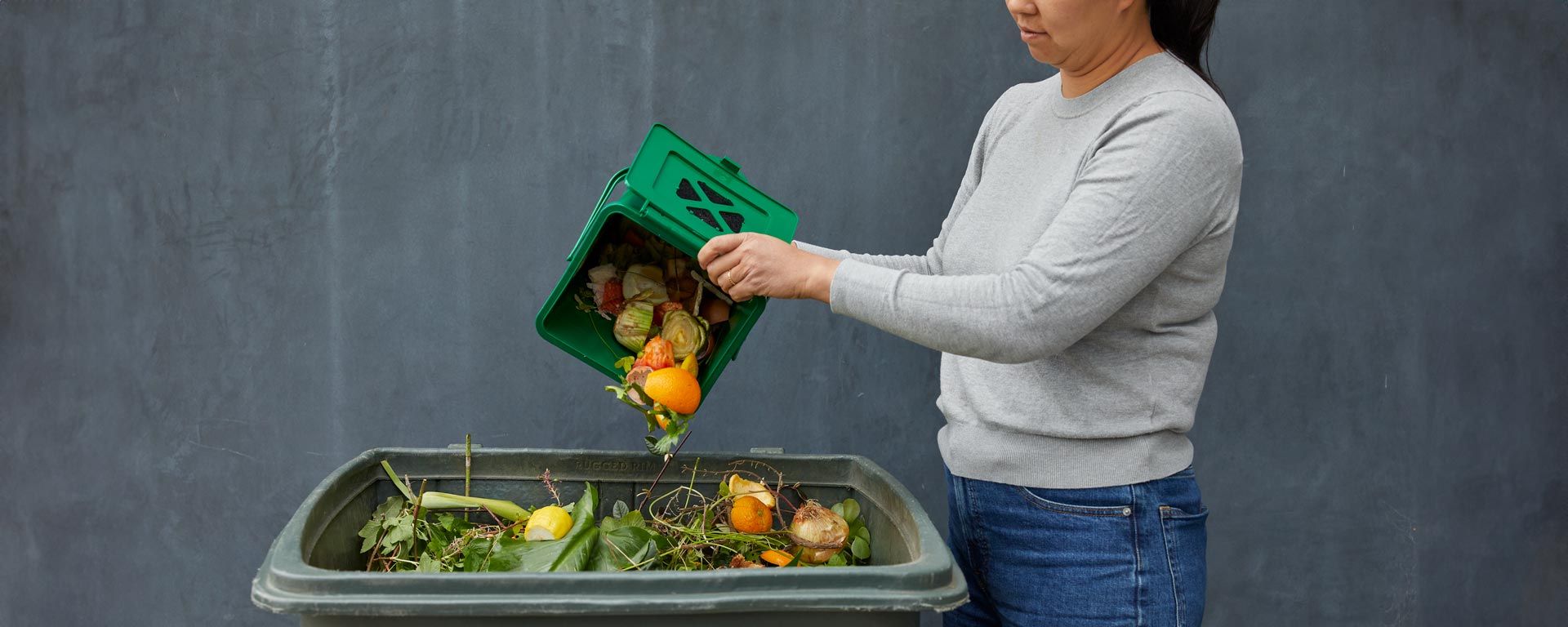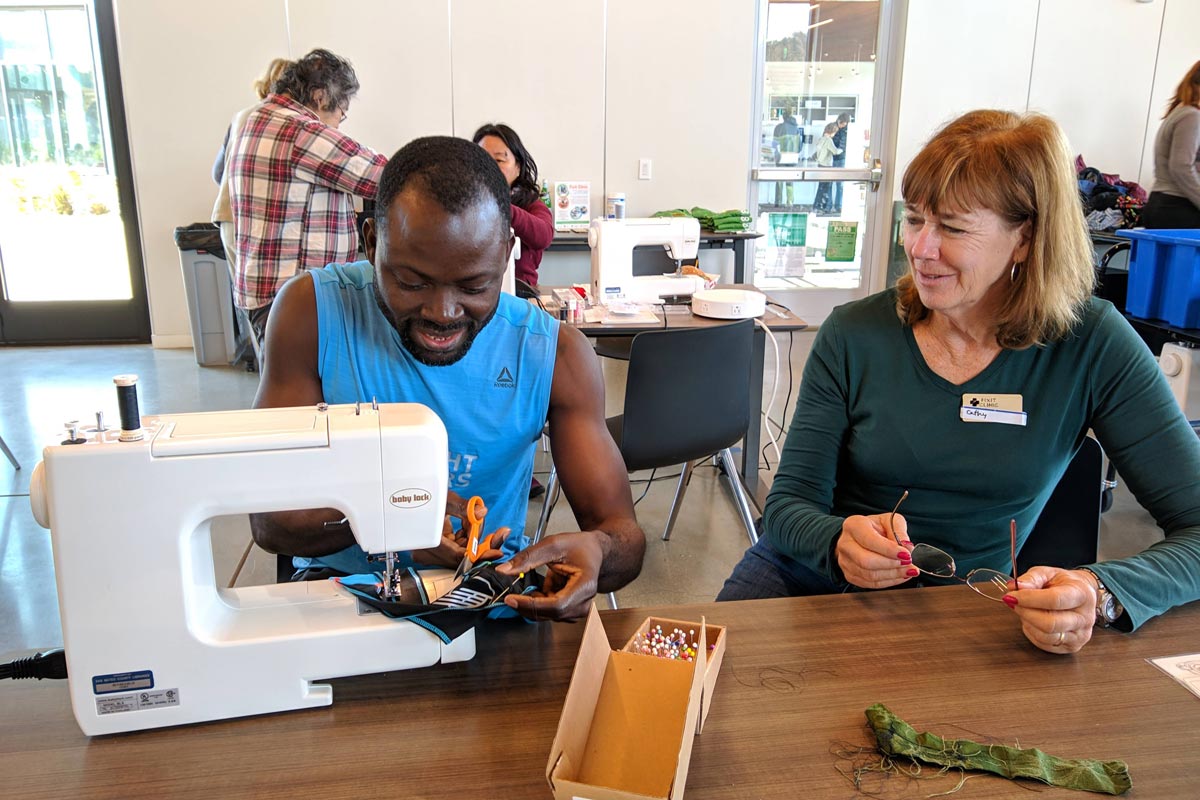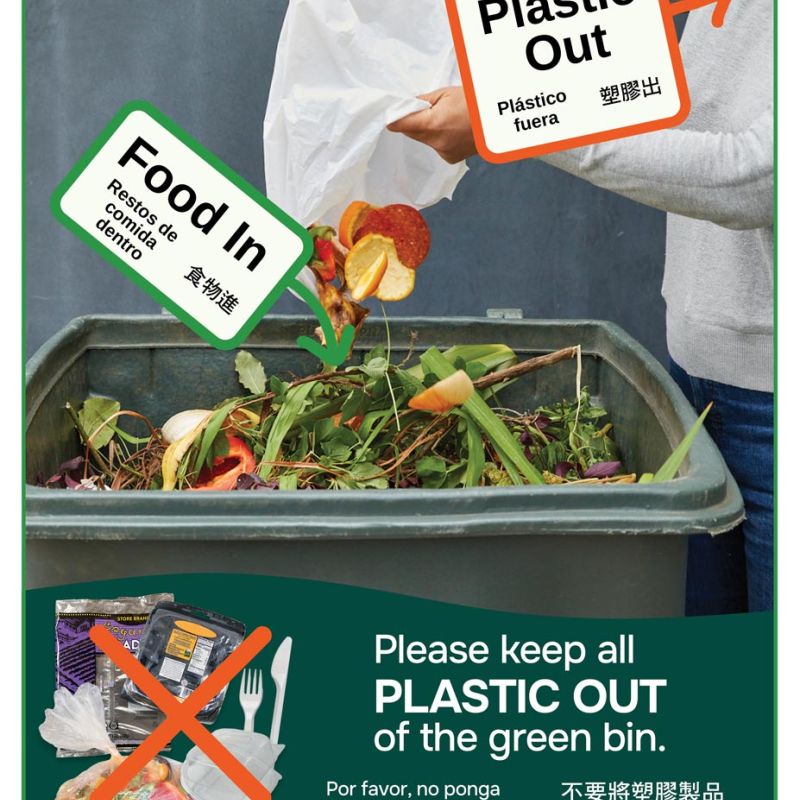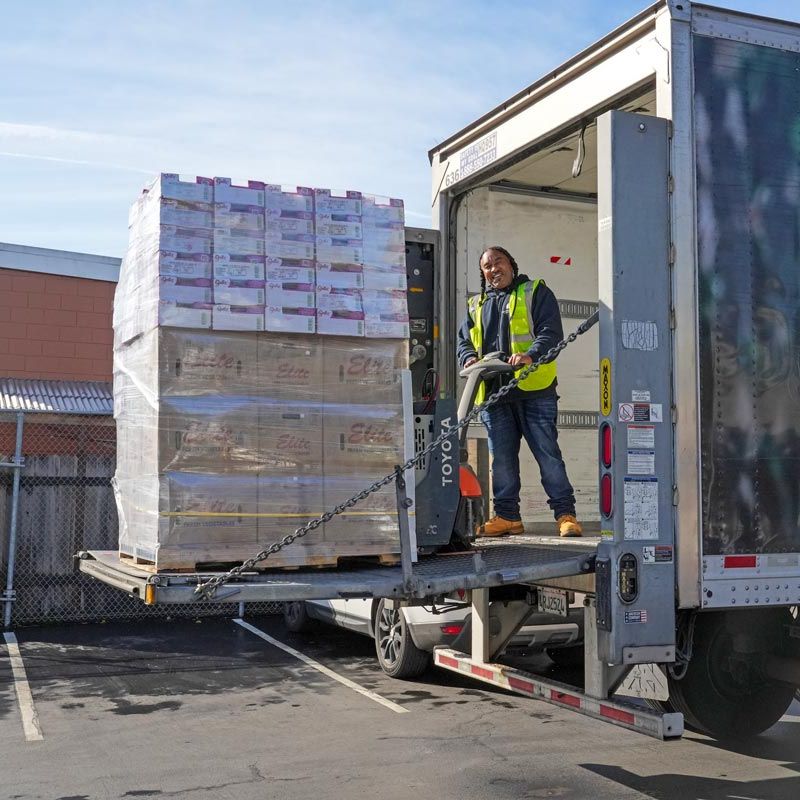
Waste
Waste produced in unincorporated communities is sent to Ox Mountain Landfill where the organic materials decompose and produce methane which is a greenhouse gas that is 28-36 times more potent than carbon dioxide in its 100-year atmospheric lifespan. Waste represents a smaller share of overall county emissions at 26%. The measures in this sector are designed to prevent materials from entering the landfill through source reduction and waste diversion actions such as reducing waste generated, reusing materials, composting organics, and recycling.
Goals:
- 2025: 18% reduction in organics in the waste stream by implementing SB 1383
Summary of Strategies
|
W-1.1 |
Building regulations for deconstruction and waste management. Update the building regulations to require deconstruction surveys for single family home demolitions that allow 10 days for salvage and require waste management plans for renovations over $50,000. |
|
W-2.1 |
Organics diversion. Work with franchised haulers and waste authorities to ensure the goals of SB 1383, the Short-lived Climate Pollutant Reduction law, are met by 2025. |
|
W-2.2 |
Edible Food Recovery Program. Implement an Edible Food Recovery Program for unincorporated areas as required under SB 1383. Increase the coverage of the Edible Food Recovery Program for densely populated, unincorporated areas, such as North Fair Oaks, and further assist food recovery organizations to increase pickup and redistribution. |
|
W-2.3 |
Recycling and composting outreach and technical assistance. Enhance recycling and composting outreach and technical assistance and investigate offering incentives to commercial and agricultural entities in unincorporated areas of San Mateo County. |
|
W-2.4 |
Improvement projects for organic waste. Reduce the amount of organics in the landfill by pursuing additional opportunities to repurpose organic materials, which may include creating additional sites to the Countywide community compost collaborative, exploring development of a composting facility on the coast, and exploring feasible capital improvement projects for reducing organics in the waste stream, such as organics extraction presses and anerobic digesters. |
|
W-2.5 |
Community carbon sequestration training. Partner with agriculture-related organizations, public school and community college districts, local community-based organizations, and other stakeholders, to develop a home carbon sequestration and soil health education campaign for residents and training opportunities for landscape professionals and local government parks and recreation staff. |
|
W-2.6 |
Local garden program. Develop a local garden program to facilitate the creation of compost and promote the use of compost at community and school gardens. Prioritize schools serving low-income communities. |
|
W-2.7 |
Agricultural waste diversion Partner with agriculture-related organizations, producers, and businesses to reduce and divert waste generated in the agriculture sector, including farms, ranches, and equestrian facilities through composting and biodigestion(10). |
(10) A biological process, also known as anaerobic digestion, through which organic matter decomposes in the absence of oxygen and, in this case, would occur in a controlled environment.
|
W-3.1 |
Business outreach promoting reusables. Conduct outreach and engagement to inform businesses of applicable laws for reducing/regulating single-use product and shipping packaging and/or promoting reuse, such as food service ware, home meal delivery services, and other packaging. |
|
W-3.2 |
Funding for local waste-related outreach. Expand opportunities to provide funding and technical assistance to non-profit organizations, schools, and other entities to implement projects relating to reuse, source reduction, recycling, and composting. |
|
W-3.3 |
County contract and event permit updates. Ensure that all County contracts and event permits require all third-party vendors provide and utilize compostable and/or reusable food service items to serve 50 or more people and provide recycling and composting infrastructure. |
|
W-3.4 |
Waste reduction and reuse programs. Partner with public institutions, private businesses, and nonprofits (like thrift stores) to develop and implement programs that encourage waste reduction and reuse. |
|
W-3.5 |
Extended producer responsibility requirements for County contracts. Require extended producer responsibility(11) (EPR) when an option to advance greater EPR exists. Scale these efforts by partnering with public school and community college districts to determine if a similar effort or policy would be feasible. |
|
W-3.6 |
Public Outreach and marketing. Continue to collaborate with other local governments (through the Bay Area Recycling Outreach Coalition, for example) to implement a regional outreach and marketing campaign. |
|
W-3.7 |
Public education and civic engagement. Expand educational offerings and resources for improving community resource conservation (addressing the “4Rs,” reduce, reuse, recycle, rot) through existing and new offerings. Explore development of a Youth Conservation Corps program that would provide local mentorship, volunteer, internship, and/or employment opportunities for youth and young adults in the resource conservation and solid waste reduction field. |
|
W-3.8 |
Workforce development in solid waste reduction. Provide and promote accessible local workforce development opportunities related to solid waste programs. Create new partnerships and economic opportunities to provide maximum benefit in the form of employment opportunities for the local workforce, residents with barriers to employment, and communities most affected by climate change. |
(11) Extended producer responsibility is a “strategy to place a shared responsibility for end-of-life product management on producers, and other entities involved in the product chain, instead of the general public.” (CalRecycle, 2020)



